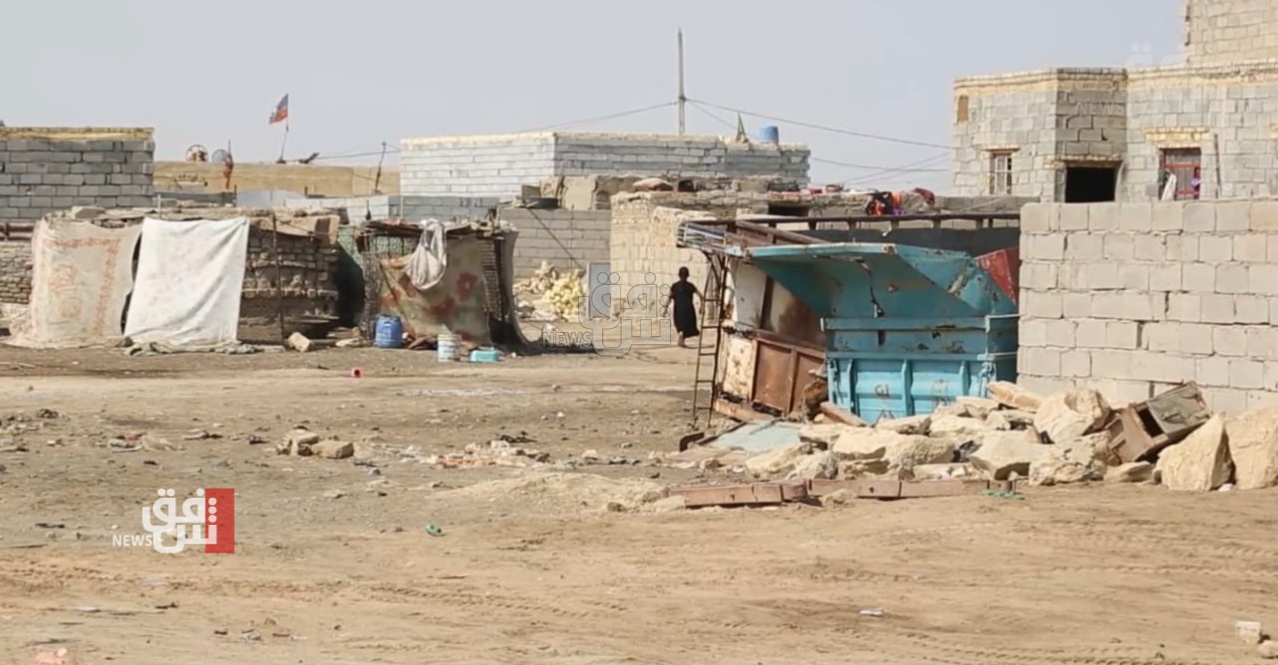Iraq’s Shadow Cities: Inside the rise of informal settlements across the nation

Shafaq News / In eastern Baghdad, 34-year-old Hussein lives in a home he built himself—using cement blocks, scrap metal, and improvisation. He pays no rent, holds no legal deed, and his neighborhood does not appear on any official map.
Like millions of others across Iraq, Hussein resides in what has become a parallel urban reality: informal settlements that stretch across the country, growing in size and visibility while remaining largely outside the state’s control.
According to newly released census data, more than nine million Iraqis—roughly one in twenty citizens—now live in these unauthorized dwellings. Spread across nearly 4,000 sites nationwide, including over 1,000 within Baghdad alone, these settlements have expanded amid population growth, economic dislocation, and the absence of unified urban policy.
Most of these neighborhoods lack formal infrastructure: paved roads, clean water, sanitation, electricity, or functioning schools. Built on land designated for agriculture, environmental preservation, or public utility corridors, these zones are legally precarious—and politically sensitive.
A Fast-Growing Crisis
Iraq’s Planning Ministry and Parliament’s Services Committee estimate that 28% of the land occupied by informal settlements was originally zoned as green space.
“Entire districts remain cut off from the government’s service grid,” MP Mahdiya al-Lami told Shafaq News. “These areas are not just underdeveloped—they’re unrecognized.” Residents face not only legal ambiguity but also social stigma and persistent exclusion from public services.
The rapid spread of these settlements is closely tied to Iraq’s population growth of nearly one million per year, and migration patterns from underdeveloped provinces like Muthanna and Maysan to urban centers such as Baghdad, Basra, and Mosul. These cities, already strained by outdated infrastructure, are absorbing waves of internal migrants in search of work and stability.
“There’s a vacuum where enforcement should be,” al-Lami explained. “Empty plots become neighborhoods overnight.” She added that not all residents are poor: “Some already own homes elsewhere but choose to settle here, expecting eventual legalization.”
Policy Gaps and Missed Opportunities
While the government acknowledges the crisis, its response has been fragmented. Planning Ministry spokesperson Abdul-Zahra al-Hindawi confirmed that informal housing is now part of both the 2024–2028 national development plan and the upcoming poverty reduction strategy.
“These zones were never designed, never serviced, and never regulated,” he told Shafaq News. “Addressing them will require more than money—it demands coordinated policy, unified governance, and accurate data.”
Previous efforts to tackle the issue have largely stalled. A 2017 national program aimed at land reclassification and legal reform was never implemented. A subsequent housing bill was rejected by Parliament twice, with lawmakers objecting to provisions that would offer rent support to unauthorized occupants—arguing it would encourage further encroachment.
“The legislation didn’t match on-the-ground realities,” al-Lami said. “The state can’t afford to normalize unregulated expansion.”
In January 2025, the Cabinet authorized local governments—excluding Kirkuk—to sell occupied municipal land directly to residents with permanent structures. The move bypasses auctions but imposes tight eligibility requirements. However, implementation has been slow and inconsistent due to the absence of national oversight.
Iraq has also partnered with UN-Habitat to develop frameworks for land registration, zoning reform, and service integration. However, experts caution that international blueprints alone cannot resolve deeply rooted structural issues.
“This isn’t about empty land,” economist Karim al-Hilu told Shafaq News. “It’s about disconnected ministries, outdated laws, and unreliable data.”
Al-Hilu estimates that up to 70% of residents in informal settlements are not in poverty. “Many are exploiting systemic loopholes. Without a clear mechanism to classify and prioritize needs, interventions won’t be effective.”
The Risk of Doing Nothing
Urban planners warn that a demolition-led approach without alternatives could trigger widespread unrest. “Clearing a slum without offering a path forward invites chaos,” said al-Hilu. “This is an institutional void, not just a squatter issue.”
While countries facing similar challenges have adopted models like cooperative housing, subsidized rentals, and relocation tied to employment, Iraq’s current legal and administrative systems are not prepared to scale such programs.
The broader danger, experts argue, is the continued growth of a parallel Iraq—an unofficial nation within the nation, where millions live without legal recognition, state protection, or reliableservices.






